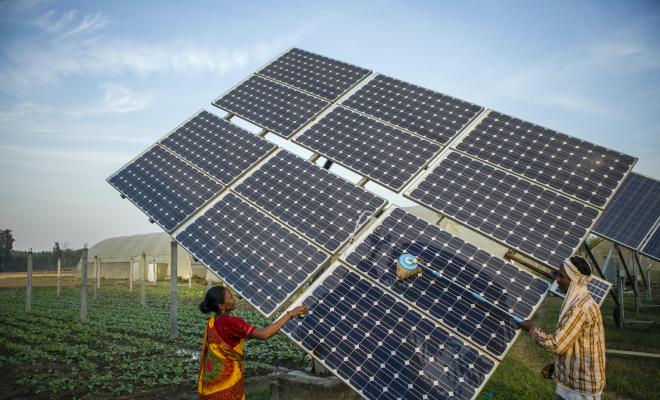Making clean energy transitions more inclusive: Evidence, knowledge gaps and policy options in low-income economies

Access to reliable renewable energy and energy efficiency can provide significant climate, development and equity benefits. Transitions to clean energy are compatible with sustainable and equitable development and women’s economic empowerment. However, in the absence of adequate policies, they may reinforce existing inequalities.
A new policy brief co-authored by CDKN's Mairi Dupar summarises the evidence that supports and knowledge gaps that hinder clean and inclusive energy transitions. It concludes that alongside addressing finance gaps and implementation barriers, tackling systemic socioeconomic inequalities is critical for inclusive clean energy transitions. Furthermore, investments and policies for renewable energy and energy-efficiency in low-income countries should be intentionally designed for the empowerment of marginalised groups across energy value chains.
The policy brief was co-authored with IDRC and Duke University colleagues ahead of the Think20 (T20) Summit taking place this week in India. The T20 is an official Engagement Group of the G20 that brings together think tanks and high-level experts to discuss policy issues relevant to the G20. T20 recommendations are synthesised into policy briefs and presented to G20 working groups, ministerial meetings and leaders’ summit to help the G20 deliver concrete policy measures.
The G20 is well positioned to facilitate the sharing of lessons on innovative practices in such transitions to make a positive impact on the lives of vulnerable populations.
Read the full policy brief, “Making Clean Energy Transitions More Inclusive: Evidence, Knowledge Gaps, and Policy Options in Low-Income Economies.”

